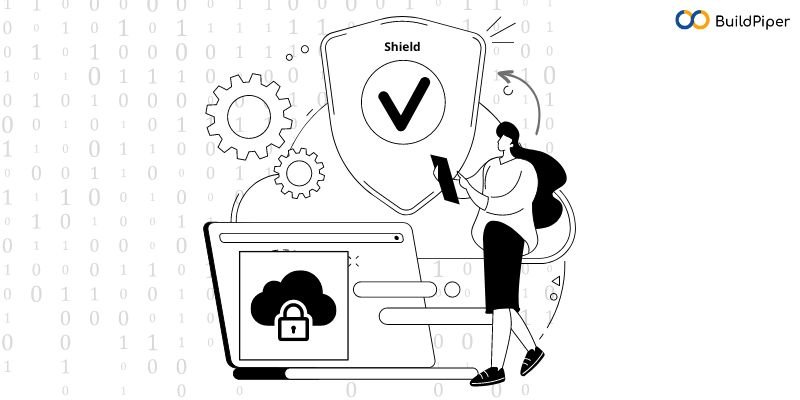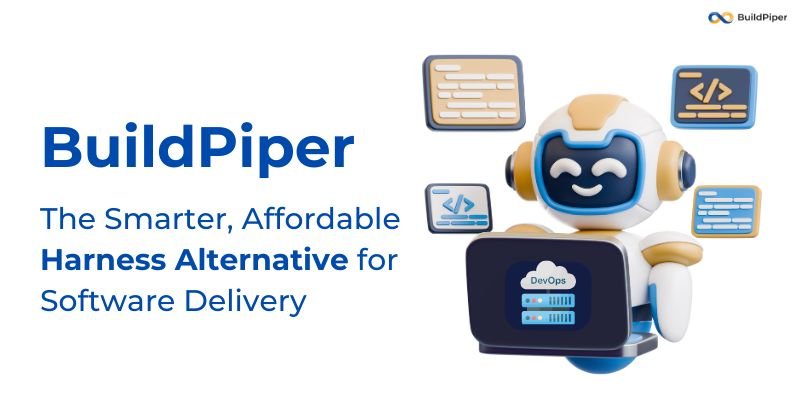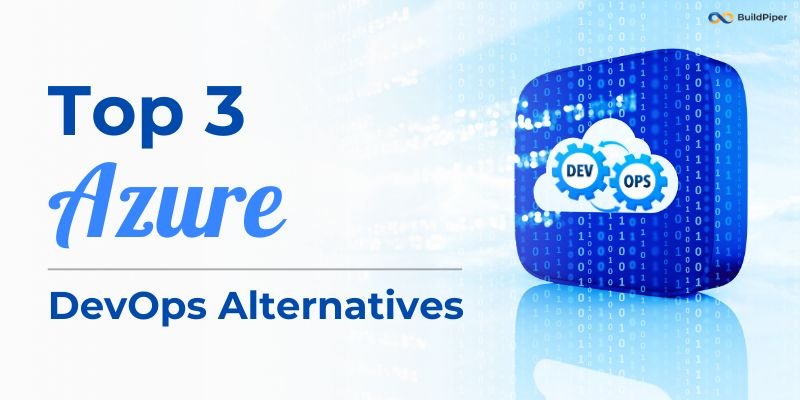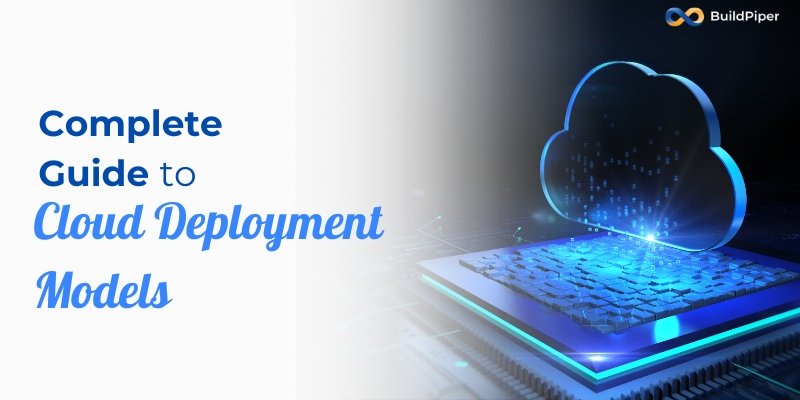Traditionally, security was often an afterthought in the software development process. The security measures were implemented late in the cycle or even after deployment. DevSecOps aims to shift security to the left. In DevSecOps, security is incorporated from the earliest stages of development and remains an integral part of the entire process.
The goal of DevSecOps is to create a culture where security is treated as everyone’s responsibility rather than solely the responsibility of security teams. It encourages developers, operations personnel and security professionals to work together, collaborate and automate security processes.
By integrating security practices into DevOps, DevSecOps helps identify vulnerabilities and risks earlier in the development process. This allows faster remediation and reduces the potential impact of security breaches.
Here, in this blog, we’ll discuss what DevSecOps is, the benefits of DevSecOps and the importance of DevSecOps in handling cloud security challenges. So, let’s get started!
What is DevSecOps?
DevSecOps is a software development approach that integrates security practices into DevOps solutions. It emphasizes the collaboration and communication between development teams (Dev), operations teams (Ops) and security teams (Sec) throughout (SDLC).
It involves the use of security automation tools, continuous security testing, code analysis, vulnerability assessments, threat modelling and secure configuration management, among other practices. DevSecOps combines the principles of DevOps and security to ensure that security considerations are integrated into every stage of the software development lifecycle. This enables the development of secure, reliable and robust software applications.
Benefits of DevSecOps
DevSecOps offers several benefits to organizations in terms of security, efficiency, collaboration and overall software quality. Here are some key DevSecOps benefits that you must look at:
- Improved Security: DevSecOps integrates security practices throughout the entire software development lifecycle. This ensures that security is not an afterthought but an integral part of the process. By addressing security early and continuously, vulnerabilities can be identified and remediated more effectively. This reduces the risk of security breaches and enhances the overall application security.
- Faster Time-to-Market: DevSecOps emphasizes automation, continuous integration and continuous delivery (CI/CD) pipelines. By automating security checks, testing and deployment processes, organizations can accelerate the release cycle. This enables teams to deliver software updates and new features more rapidly to meet market demands.
- Early Detection of Vulnerabilities: DevSecOps promotes the use of continuous security testing, code analysis and vulnerability assessments. These practices allow for the early detection of security vulnerabilities. This allows development teams to address them promptly before they become more complex and costly to fix.
- Collaboration and Communication: DevSecOps encourages collaboration and communication between development, operations and security teams. This helps in breaking down silos and fostering cross-functional collaboration. Teams can share knowledge, align on security requirements and work together to achieve common goals. Ultimately, this results in improved efficiency and reduces friction between teams.
- Continuous Compliance: DevSecOps integrates compliance requirements into the development process. By automating compliance CI checks and incorporating them into the CI/CD pipeline, organizations can ensure adherence to regulatory standards to minimize compliance risks.
- Increased Scalability and Flexibility: DevSecOps practices, such as infrastructure as code (IaC) and containerization, enable organizations to scale their infrastructure and applications more efficiently. These DevOps solutions provide greater flexibility in managing resources, deploying applications and adapting to changing business needs.
- Enhanced Software Quality: DevSecOps emphasizes continuous testing, quality assurance and feedback loops. By automating testing processes and ensuring early detection & resolution of issues, the overall software quality is improved. This leads to better customer experiences and reduced post-deployment issues.
- Risk Mitigation and Incident Response: DevSecOps promotes proactive monitoring, logging and incident response capabilities. By continuously monitoring the application and infrastructure, organizations can detect security threats, identify vulnerabilities and respond quickly to security incidents. This minimizes their impact and reduces downtime.
These are some of the major DevSecOps benefits that businesses can leverage by incorporating security in SDLC. DevSecOps as a Service fosters a culture of security, collaboration and continuous improvement. This results in more secure, efficient and high-quality software development processes. It enables organizations to deliver software faster with improved security posture and reduced risk.
[Good Read: Top DevSecOps Tools in 2022!]
How DevSecOps Addresses Cloud Security Challenges?
Cloud and DevSecOps are highly complementary. Both of these can work together to enhance the overall security and efficiency of software development and operations. DevSecOps address cloud security challenges by integrating security practices throughout the entire cloud development and operations lifecycle. Here are some ways DevSecOps tackles cloud security challenges:
- Shift-Left Security: DevSecOps promotes the early integration of security into the development process, starting from the planning and design stages. This approach allows security considerations to be addressed from the beginning. Doing this reduces the chances of vulnerabilities being introduced in multi and hybrid-cloud implementation.
- Continuous Security Testing: DevSecOps emphasizes continuous security testing throughout the cloud environment, including code analysis, vulnerability scanning, penetration testing and security assessments. By automating these tests and integrating them into the development pipeline, vulnerabilities can be identified and resolved in real-time. This ensures security of the cloud infrastructure and applications.
- Infrastructure as Code (IaC) Security: DevSecOps leverages IaC principles to manage and provision cloud resources. This approach enables security controls to be codified and version-controlled, ensuring consistent security configurations and reducing the risk of misconfigurations or insecure infrastructure.
- Automation and Orchestration: DevSecOps utilizes automation and orchestration tools to enforce security policies, automate security checks, and rapidly respond to security incidents. By automating security processes, teams can achieve faster and more consistent security enforcement across the cloud environment.
- Monitoring and Incident Response: DevSecOps emphasizes proactive monitoring and incident response capabilities for cloud security. Continuous monitoring helps identify potential security threats, detect anomalous behaviour, and respond quickly to security incidents. This minimizes the impact of bugs on the cloud environment and helps in seamless multi and hybrid-cloud implementation.
- Compliance and Governance: DevSecOps integrates compliance and governance requirements into the cloud platform engineering process. By incorporating security controls and compliance checks into the pipeline, organizations can maintain strong governance practices.
By adopting DevSecOps as a Service solutions, organizations can enhance cloud security by integrating security into every stage of the development lifecycle. This helps in promoting automation, collaboration and a proactive approach to addressing security challenges.
BuildPiper: Your Trusted DevSecOps & Cloud Partner for Success
Security is a top priority in the digital age, and our Cloud DevSecOps services have got you covered. Our team of experts embeds security practices throughout the development lifecycle, ensuring that vulnerabilities are identified and mitigated early on. With continuous monitoring and proactive threat detection, your business stays one step ahead of potential cyber threats. So, harness the power of DevSecOps and Cloud services to achieve faster time-to-market. Discover the limitless potential of this winning combination and gain a competitive edge in today’s digital landscape.
Our security experts and cloud architects provide dedicated support throughout your Cloud and DevSecOps journey. From initial implementation to ongoing maintenance, our experts are here to address your concerns and ensure a smooth and successful transformation.
Moreover, our streamlined cloud platform engineering services help eliminate bottlenecks, allowing your development teams to deliver high-quality software at an unprecedented speed. With automated testing, continuous integration and deployment pipelines, your business can respond swiftly to market demands.
A DevSecOps platform such as BuildPiper can also help. It enables teams to integrate security practices right from the beginning, ensuring that security is built into every stage of the development process. This helps in identifying and addressing security risks early on, reducing the chances of vulnerabilities being introduced into the software.
Embrace the future of software development and infrastructure management with our Cloud DevSecOps services. Experience faster time-to-market, robust security measures, scalability and cost efficiency. Let us be your trusted partner in unlocking the full potential of your business. Contact us now to embark on an extraordinary DevOps and Cloud journey!









